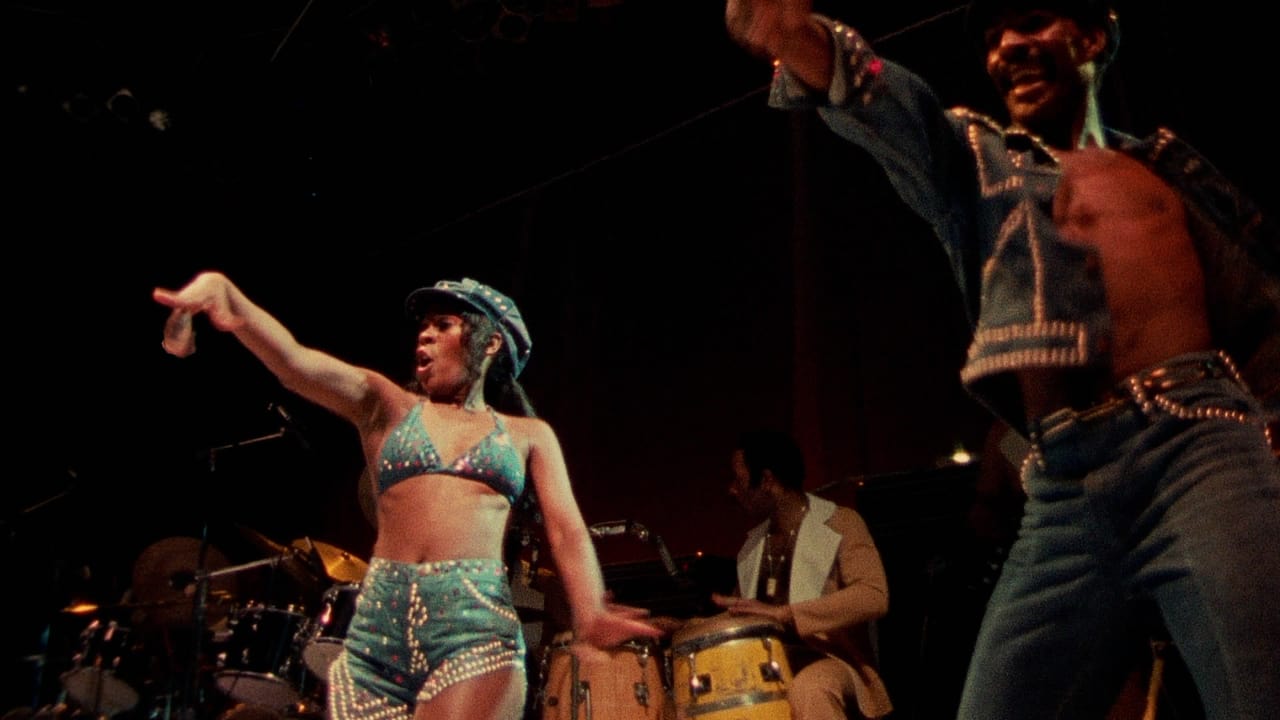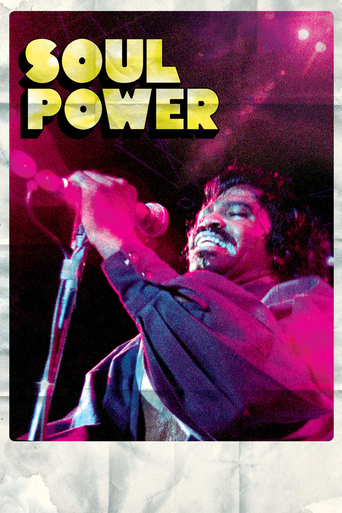NekoHomey
Purely Joyful Movie!
YouHeart
I gave it a 7.5 out of 10
Tacticalin
An absolute waste of money
Organnall
Too much about the plot just didn't add up, the writing was bad, some of the scenes were cringey and awkward,
SnoopyStyle
It's 1974 Kinshasa, Zaire. Promoters Hugh Masekela and Stewart Levine are organizing a companion music festival for the Ali-Foreman fight. It is to be the combination of African American music and musicians from mother Africa. James Brown is the headliner. A few days before the event, the fight is delayed due to Foreman's eye cut. The problem is that the music festival can not be delayed. The show must go on. This documentary starts like a freight train with James Brown and Soul Power. The main problem stems from the fact that it doesn't follow one person. It's a scattered way to tell a narrative. There is no structure. It's more like a series of behind-the-scenes snippets. There are amazing scenes of the stars talking, and some great musical performances. It's a nice series of vignettes that allows the audience to travel back in time to a specific place.
druid333-2
Jeffrey Levy-Hinte's film 'Soul Power'is a remarkable concert documentary that was filmed in Zaire in 1974,as part of the Muhammad Ali/George Forman fight,known as The Rumble In The Jungle. This was a 12 hour,three night festival of musical talent from various parts of Africa,as well as the United States. The film begins with footage of the preparations for the concert,and the red tape and b.s. that goes along with putting on a concert of grand scale. Once the music begins,it's no holds barred. The musical talent includes,James Brown,The Crusaders,Miriam Makeba,B.B. King,The Fania All Stars (with the late,great Celia Cruz), The Spinners,and a host of others. Interview footage of Muhammad Ali, Don King,and others representing the boxing match also figures as a foot note (for further details,check out Leon Gast's 'Once We Were King',which Levy-Hinte edited),about the actual match itself). The music will have you stomping holes in the floor of the cinema that is screening it. Rated PG-13 by the MPAA,this films contains a rude word or two,and some mature thematic elements
James J Cremin
At the time of this writing, media is still mourning, marketing or doing into sordid details of the recently departed Michael Jackson. What most people know or should know is one of Jackson's most favorite performers was James Brown. Brown was clearly the headliner of this historic concert festival that took place in Zaire in 1974.There were other performers that came over on the airplane to perform. Among them were the vocal group the Spinners, the instrumental group the Crusaders, B.B. King with his group and the Cuban Queen of Salsa, Celia Cruz. In fact, it's Cruz's group that's shown leading the impromptu jamming and singing though in fact, they're singing in Spanish.We also get plenty of Don King, legal counsel Ian Strafford and Muhammed Ali. The fight is postponed due to a finger injury by George Foreman who's not shown at all. This film is best seen with WHEN WE WERE KINGS to provide better context. Ali's black pride and complaints about the white man are recorded but this doc should have been more about the music. But perhaps it's needed as Brown also makes his opinions known.We get to see King going through his set list but only his hit "The Thrill is Gone" is showcased. Except for Brown, the rest of the performers also get just one song. There were a number of African performers but only Miriam Makeba out of them get one song.Brown gets three songs and I thought the costume he was wearing a bit odd. He was into fusion jazz funk at this time which was not as commercial as his earlier hits. He also gets the last line to end the movie. "God d**n it, you are somebody" he says as he looks into the camera. Soul Brother Number One.
jammasta-1
This movie is a selection from many hours of footage produced before and during the music festival that was to accompany "The Rumble in the Jungle" - the heavyweight championship fight between Ali and Foreman in '74. The festival was meant to bring the American soul/r&b/funk/blues musicians "back home" to Africa and give them the opportunity to perform alongside African stars, such as Miriam Makeba. The movie is centered on James Brown, the main star of the three-day festival. It is more about the event as such, its "technical" background, than about schoolbook history. Even then, it leaves a lot of ambiguities open for the viewers to see. We hear Ali comment on the peaceful life Zairians lead while American blacks are ever threatened by accidents or (white) hatred. But this peaceful life is controlled by the government that urges the people to love their dictator. Although this movie doesn't deal with the political tensions involved in this Zairian sojourn, the implications are there. One thing that some viewers might not like is that "Soul Power" leaves little room for the African artists, focusing instead on the American greats like Brown or B.B. King. Another is that it's so short - King has only one feature, Brown has no more than three. At the Berlin IFF (Berlinale), the director (or editor, as the movie is simply made up of footage produced over 30 years ago) explained that he couldn't afford more than he did; also, some of the performances at the festival were of lower quality. As it is, the songs that we hear in "Soul Power" are beautifully shot - and finely recorded. At any rate, this movie is worth watching. It's interesting and it's funny. Go see for yourself!

